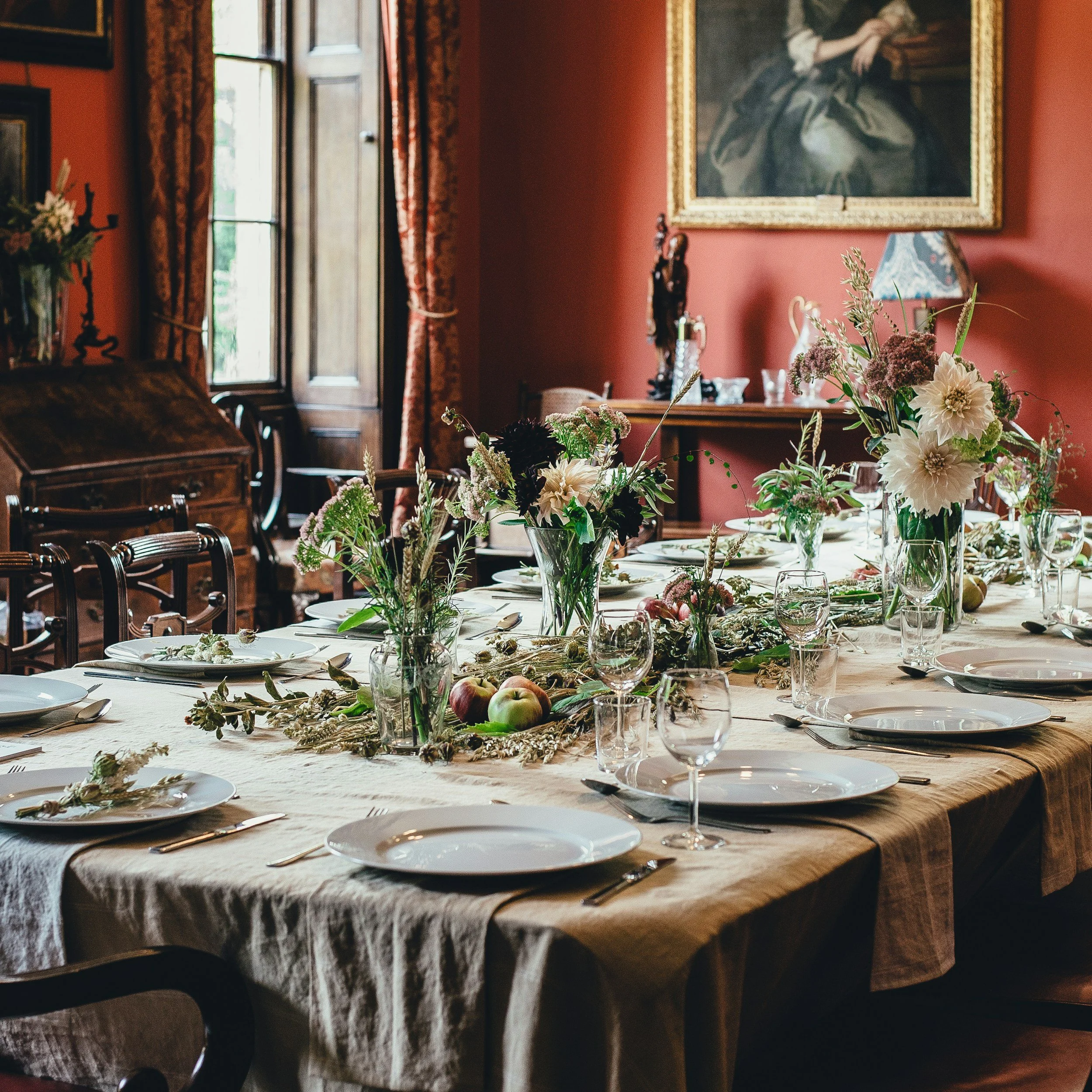The Room Where I Was Small (#5)
Early May, 1912. The room still smells of smoke.
The gentlemen were playing cards.
I had no intention of interrupting, only to deliver the letter that had arrived for him not five minutes earlier. It bore a foreign stamp, heavy ink, his name etched in a sharp, unfamiliar hand. I thought it best not to delay. He’d been awaiting correspondence from Brussels, or perhaps Calais. I hadn’t asked, I’d only heard the mention over breakfast, the way one hears the weather forecast: distant and vaguely consequential.
I knocked once.
There was the low murmur of voices, and then his voice, belligerent, cheerful, distracted. “Come in, darling!”
I stepped inside.
The card room was warm with pipe smoke, laughter, and the layered scent of cologne, wood polish, and something vaguely sour. A chandelier flickered above the table, casting uneven light across their coats and cufflinks, their tumblers and coins. The air was thick with the kind of merriment that makes women elsewhere uneasy.
I said nothing at first, only smiled. That tight, practiced smile a woman wears when she’s not sure whether she’s welcome, but refuses to appear uncertain.
He saw me, and waved me in.
“A letter?”
I crossed the room; carefully, slowly, mindful of where the smoke curled and where the men’s eyes rested. I handed him the envelope.
“It just arrived,” I said lightly.
And I turned to leave.
I had done what was asked. What was appropriate. I had played my part.
But then he said it.
“Well, gentlemen,” he said, loud enough to pause the shuffle of the deck, “you see why I married her, always arrives promptly with my correspondence. A useful little thing.”
There was laughter.
Not the kind that fills a room, the kind that skims its surface. Polite, shallow, tinged with something colder. I do not believe they meant to be unkind. I do not believe that makes it better.
I smiled again.
Of course I did. I said something about the post being late this week. Or perhaps it was about the weather. I can’t recall. My throat had gone dry, and my fingers felt cold, though the room was stifling.
I glanced around, hoping no one would notice the tremble in my hands.
Only one person did.
Yates Everett was there.
He had not laughed.
He had not spoken.
He had only watched me. Not with pity, not with alarm, but with that terrible stillness of a man who sees exactly what has happened and chooses to let you keep your dignity by not naming it.
His gaze held mine for half a breath too long. Not long enough for scandal, but long enough for recognition. It was the look one gives a woman who has dropped something precious and walked away without realizing it.
I excused myself. I left the room as I had entered it: carefully.
But the smoke clung to me.
It still does. I can smell it in my hair, feel it in the collar of my dress, hear the echo of laughter that wasn’t mine. I changed clothes when I returned to my rooms. I lit a candle. I poured tea. But I can’t seem to rid myself of that momen, small and sharp, and echoing louder than it should.
I’m not ashamed.
Not exactly.
And I’m not wounded, not in any visible way.
But I am… tired.
Tired of being spoken about while still standing in the room.
Tired of being praised for being useful.
Tired of yellow gloves and polite answers. Tired of shrinking myself to fit the idea of what it means to be a good wife.
He didn’t mean it cruelly.
That’s what makes it worse.
He thought he was being charming. He thought the room would laugh. And it did.
And I played along.
Like I always do.
But something in me flinched.
Something that no longer wants to be useful.
Something that remembers being seen — truly seen. Even if just for a moment, by someone who didn’t smile when I was made small.
I don’t know why it stung more today.
Perhaps because someone saw, and in his silence,
offered me the one thing I hadn’t realized I needed:
to be seen, not saved.
I sat in the drawing room after supper, still in my second dress of the day, hair pinned a bit too tightly. The house was quiet. The windows open just enough to let the scent of lilacs drift in. I hadn’t meant to stay long. I meant only to fetch the shawl I’d left behind. But the room was still warm with light, and I was too tired to keep moving.
The tea was cold. I drank it anyway.
I thought of the way he’d looked at me. Not pitying. Not heroic. Just… aware.. present. It made me want to cry and stand taller at the same time.
I unpinned my hair.
I took off the yellow gloves and set them on the table beside me. One landed palm-up. I stared at it for a long time, not quite knowing why I felt like I was looking at a version of myself I no longer wished to wear.
Somewhere in the hall, a clock struck. I didn’t count the chimes.
I just sat.
And breathed.
And let myself feel something I couldn’t name.
Not shame.
Not sorrow.
Not even anger.
Just the quiet ache of having been made small.
And the even quieter promise that I wouldn’t stay that way.
—L.B.
You Might Also Love…
Copyright Notice:
© 2025 Lady Bergamot's Library. All rights reserved.
This work is the intellectual property of Lady Bergamot's Library (Jessica Jones) and may not be reproduced, copied, pasted, or rewritten without prior written permission.
Links to this content may be shared, but the content itself may not be copied, republished, or distributed elsewhere.
All content on this site, including but not limited to text, images, and original works, is protected by copyright law.



















I was in fourth grade when I found A Series of Unfortunate Events. I talked about them on AIM with my best friend, devoured each new hardcover, and felt like someone finally trusted me with something strange and brilliant.